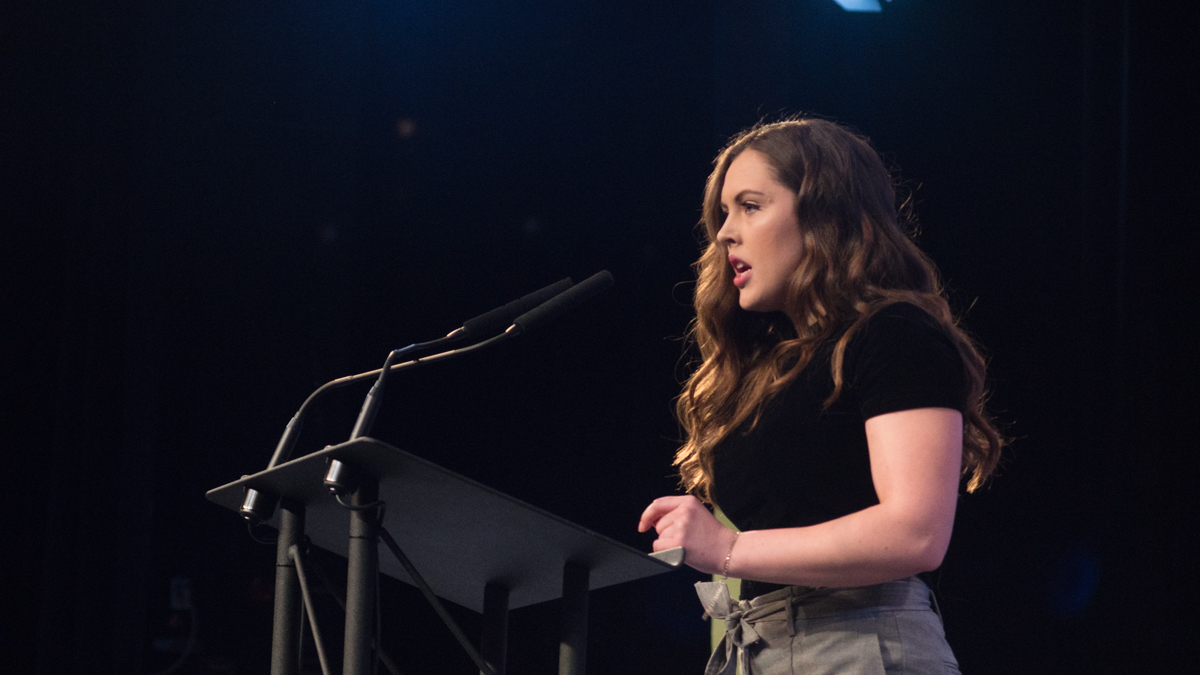 Richard Bagan
Richard BaganEach year, The Gateway publishes an evaluation of the Students’ Union executive and the Board of Governors representative. It’s impossible to discuss every aspect of their tenures, so these reports are largely based on the major components of the platform each executive campaigned on, and the most significant responsibilities of their respective positions. These evaluations were informed by interviews with the executives themselves. The grading rubric can be found below. And if you’re short for time, check out our TLDR for a bite-sized breakdown.
Emma Ripka: C-
While Ripka has made progress on some of the small, more quality-of-life elements of her platform — such as introducing vegetarian and vegan options at our campus bars and creating an SU catalogue for student groups — she’s fallen very short on one of the most important parts of the vice-president (operations and finance) portfolio: deferred maintenance.
Ripka had campaigned on the creation of a skill-sharing network, where students and student groups could connect to collaborate on various projects. It turned out that at the beginning of her term, the UAlberta Alumni Association was just about to launch Switchboard, their own job board platform. They asked Ripka to collaborate on it, which she did; the Alumni Association footed the bill and the SU handled marketing. Switchboard, however, is in many ways not the project Ripka set out to establish; instead of students getting in touch with student groups to collaborate on projects, Switchboard’s asks and offers centre around students looking for internships or employment. Ultimately, she ended up compromising heavily on her original campaign point by partnering with Switchboard.
As far as campus bars, many of Ripka’s promises in this area have come or are coming to fruition. Vegetarian and vegan options have made their way onto the menus of RATT and Dewey’s, and anecdotal feedback, Ripka says, has been great. She notes that this platform goal is the one that has resonated strongest with students most. I have to agree with her; this is the campaign promise she’s fulfilled most fully, and the new options are pretty good.
She’s also in the midst of preparing the final draft of the Dewey’s strategic plan, which is designed to provide a long-term vision for the Dewey’s brand with general recommendations on how to make the best of the space. Such a plan will hopefully provide ground for improving Dewey’s presence on campus, much like the renovations and programming brought to RATT last year.
Ripka’s other campaign project, the SU catalogue, designed to help student groups know what kind of services and such that SU businesses can provide them with, is set to be finished by the end of her term. Again, this is another small quality-of-life change for student groups wishing to make good use of SU services.
And while these small changes are okay on their own, they lose their lustre in the face of Ripka’s biggest failure: tackling deferred maintenance, a central part of the operations and finance portfolio. While she did put in a lot of work into consultation for the now-dead student spaces levy, Ripka admits that the process of forming the referendum question was plagued with various crippling issues. These included things like a lack of public communication around the question and failure to get written agreement from university administration for the plan, which drew big concerns from many members of Students’ Council and eventually killed it before it could go to referendum. She’s currently working on a formal review of the process to give pointers to her successor on how to tackle a similar project in the future, which I commend her for. Without review, we’d be merely bound to repeat the same mistakes if another long-term capital plan was proposed next year.
TLDR: While Ripka was able to get some of her smaller campaign points realized, she’s failed to make progress on deferred maintenance, the most significant part of her portfolio. While SU businesses have continued to run efficiently this year, and there’s been groundwork established to help them improve in the future, larger questions around sustainable renovation of SU spaces are still up in the air.
Rubric:
A-range: This person has fulfilled the promises they campaigned on, has created tangible change during their tenure, and has shown a commitment to improving the lives of students. Their GPA is looking good.
B-range: This person has done their job consistently well, but has not made any remarkable changes, or has fallen short on important goals they set out in their platforms. They’re doing fine, but it’s nothing to phone home about.
C-range: This person has done their job sufficiently, but has failed to make significant progress in the areas most relevant to their portfolio, or has essentially abandoned a major part of their platform. They’re still passing with a safe buffer though, and Cs get degrees!
D-range: This person has done a very lacklustre job, and has not sufficiently fulfilled their campaign promises or the responsibilities of their position.
F-range: This person has not done their job, has not represented students, and has not fulfilled their campaign promises whatsoever.




